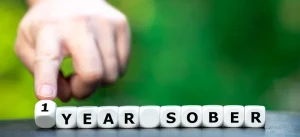
It also reduces the impact of another chemical known as glutamate, which usually keeps things firing. It can also cause signs of being drunk, like clumsiness, slurred speech, and tiredness. When you consume alcohol, it enhances the effects of a neurotransmitter called GABA in your brain. This creates a sedative effect as it blocks certain signals in your central nervous system. They can disrupt everyday activities like writing, marijuana addiction eating, or even holding a cup, making everyday life challenging. At The Recovery Village Atlanta Drug and Alcohol Rehab, we offer a whole-person approach using comprehensive care to meet any individual’s situation.
What Are the Symptoms of Alcohol Shakes?
- In contrast, delirium tremens (often abbreviated as DTs) represents the most severe form of alcohol withdrawal, occurring in a small percentage of individuals detoxifying from alcohol.
- Our dedicated team of professionals provides personalized care to guide you through withdrawal and toward lasting recovery.
- Alcohol-induced tremors, commonly referred to as “the shakes,” are rooted in the profound effects that alcohol has on the central nervous system (CNS).
- Alcohol disrupts your nervous system, which leads to those shaky hands.
This means the person may have hallucinations, often visual or tactile. There are both manual and electronic breathalyzers, with the electronic ones being faster and more accurate. There are different ways to find out if alcohol is in your system, and each method has its time frame for detection. While those shakes are annoying, they’re usually temporary, and plenty of things you can do to feel better, like rehydrating, eating good food, and getting some rest. This blog explains why those shakes happen and how to feel better.

Treatment Programs
- Learn the causes, differences between casual drinking and abuse, and the five types of alcoholics.
- Outpatient options, on the other hand, allow individuals to maintain certain aspects of their daily life while receiving treatment.
- After detox, continue to drink the recommended daily amount of water to energize body, improve kidney function, and improve bowel function.
- It’s important to note that the intensity and duration of symptoms can vary significantly from person to person.
- The brain, now hyper excited due to excess glutamate and reduced GABA, can cause various symptoms, including alcohol shakes.
The more people in hangover shakes your personal network that you trust to support your journey, the more likely you are to be successful. Focus on a diet full of lean proteins like fish, chicken, lean meats, beans, lentils, nuts and nut butters, and nonfat dairy products. Eat a diet rich in whole grains, vegetables, and fruits (be sparing with fruit as it’s high in sugar). Aside from medication, several relaxation techniques can help you better manage the shakes. For example, learning meditation and deep breathing exercises can calm you so that you are less bothered by them. These methods will also assist you in preventing relapses whenever you encounter a trigger.
Medical Treatment for Alcohol Shakes

Mindful meditation is another great way to reduce your anxiety and help prevent cravings and future relapses. To learn how to find an inpatient detox center, read more from our Medical co-author. If you or someone you know starts to shake anywhere from 6 to 84 hours after drinking alcohol, call a hospital or treatment center as soon https://ecosoberhouse.com/ as possible. Practicing a healthy lifestyle benefits all aspects of your life.

Relaxation and Exercise Techniques
- Seeking medical intervention and treatment options is crucial to ensure your safety and wellbeing during this time.
- If you’re experiencing alcohol shakes and wondering how to get rid of the shakes from alcohol, it’s important to understand their cause.
- Clonidine suppresses central nervous system overactivity to minimize the severity of withdrawal symptoms and help patients complete the detoxification process.
- If you’re in Georgia and seeking help for alcohol withdrawal, it’s essential to choose a program that adopts a whole-person approach.
Our team of dedicated professionals are here to help 24 hours a day. For example, doctors often give out benzodiazepines like diazepam to help calm anxiety and stop seizures during withdrawal. Beta-blockers can help with problems like a fast heartbeat and shaking.
